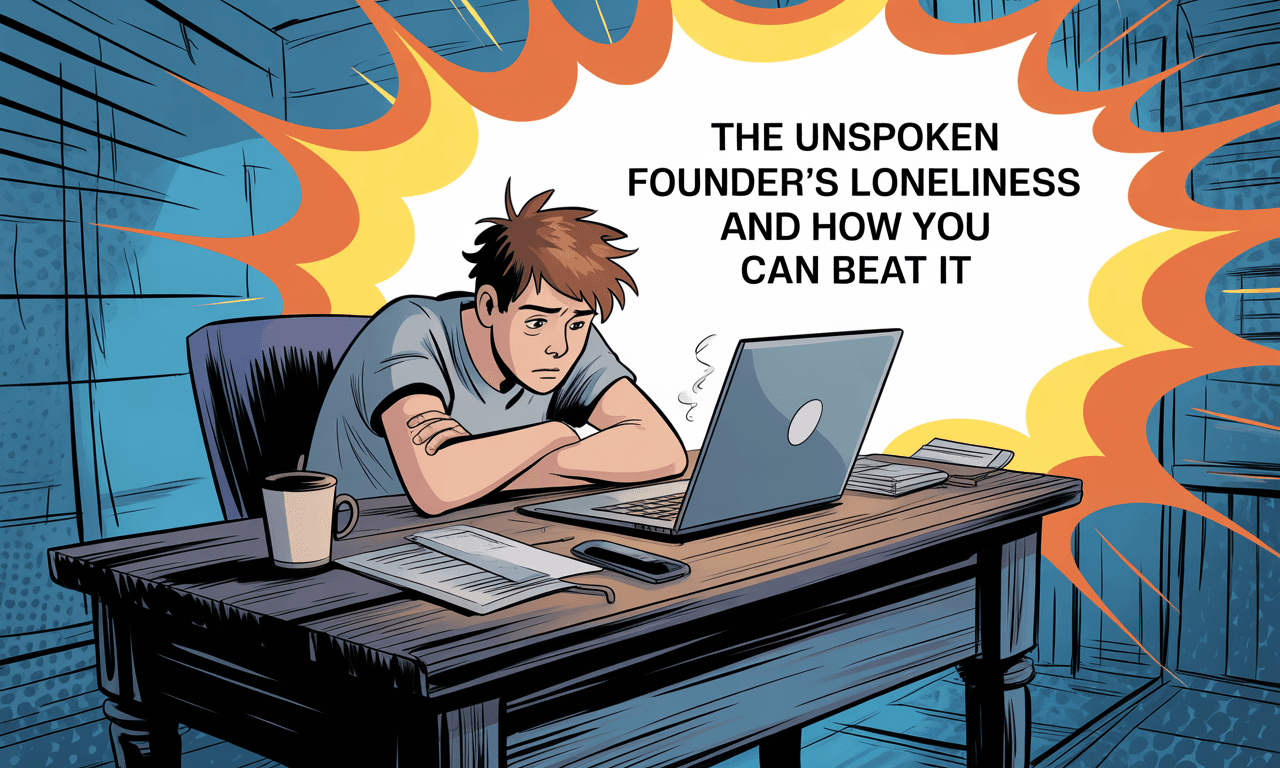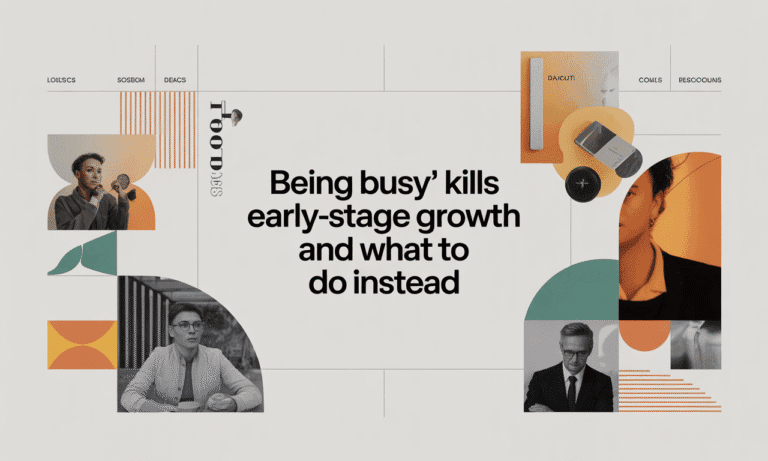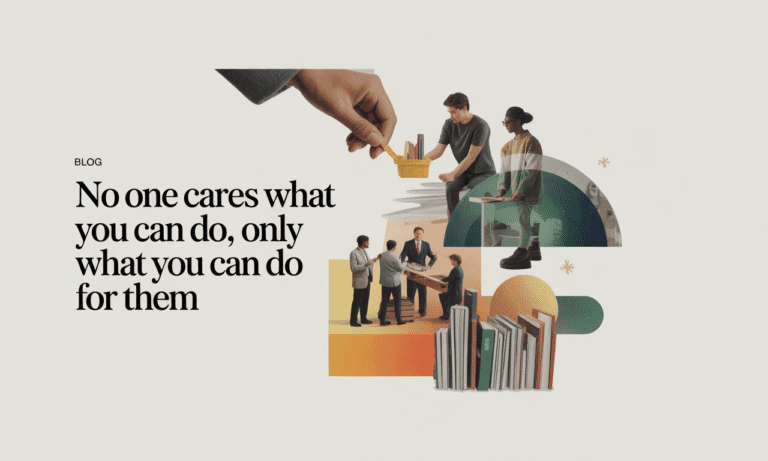Hey, If you’re reading this, chances are you’ve built something of your own. Maybe you’re solo, maybe part of a small team, but either way, the shift from “part of something” (employee, team, coworking buzz) to “it’s on me” can get very quiet. Very lonely.
I’ve been there. Went from being in big teams, bouncing ideas off co-workers, to doing everything solo. The result: a lot of days with no one to share decisions, no one to test ideas, sometimes no one to even talk through doubts.
Here’s the good news: you are not alone. The founder’s loneliness is real, common, painful, and yet survivable. With the right mindset, tools, support system, you can work in a way that limits the isolation, protects your mental health, and actually uses loneliness as fuel, not a sinkhole.
Below is what I learned, what research confirms, actionable steps, and even a toolkit you can adopt straight away.
Before jumping into fixes, here’s what studies + expert sources tell us:
Prevalence: About 70% of entrepreneurs report experiencing loneliness.
Why it’s worse for founders:
- Decision fatigue + responsibility is high (everyone looks up to you)
- Fewer people who get your situation (non-founders don’t always relate)
Boundaries blur: work, life, stress overlap; when you work from home, the “switch off” is hard.
Impacts if not addressed: Burnout, poorer mental health, worse decision-making, possibly slower business growth.
So the stakes aren’t small. But the solutions are often simpler than we expect.
Four Powerful Ways to Deal with Founder Loneliness (That Actually Work)
Here’s how I / other founders have tackled loneliness. Each of these has been backed by research or real-world experience. I’ve ordered them from foundational (most important) to the things that amplify the effect.
1. Build a Support Network (Mentors, Peers, Advisory Groups)
What It Involves: Find people who understand entrepreneurial pressure, can give feedback / empathy, hold you accountable.
How to Start Doing It:
- Identify 2-3 founders/peers to connect with weekly or biweekly.
- Join mastermind groups (even virtual).
- Set up an informal advisory board, people you trust & respect, maybe even outside your field, to get different perspectives.
Why It Helps: Gives you emotional relief. Someone to share the load. You get different viewpoints, reducing blind spots. Research shows peer support reduces feelings of isolation.
2. Regularly Disconnect & Take Intentional Breaks
What It Involves: Scheduled time off / switch off / non-work activities.
How to Start Doing It:
- Block “no-work” slots daily (e.g. evening), weekly (a full day off), monthly (a weekend or mini-retreat).
- Do something creative or physical that is not business related: painting, horseback riding, hiking, etc.
- Consider mindfulness / meditation or journaling to process what’s going on.
Why It Helps: Mental reset. Helps you return to work with fresh energy. Reduces stress and helps you see the bigger picture again. Research supports sleep, rest, and non-work activities reduce burnout.
3. Connect with Like-Minded People & Communities
What It Involves: Communities of founders, regular in-person or virtual touchpoints.
How to Start Doing It:
- Join entrepreneur-focused communities (online & offline).
- Use coworking spaces (even part-time) to get some energy of working around others.
- Attend meetups, workshops, local networking; be proactive in chats or forums.
- Find or start peer groups (could be 2-5 people) who share struggles, ideas, resources.
Why It Helps: Being among people who “get it” reduces the sense of being weird or alone. Offers support, ideas, sometimes business partnerships. Feels motivational.
4. Take Care of Mind & Body. Physical and Mental Health First
What It Involves: Sleep, exercise, diet, mental check-ups, professional help when needed.
How to Start Doing It:
- Build in regular exercise (could be 20-30 mins, 3-4x/week) ideally outside.
- Get consistent good sleep; track sleep if needed.
- Use stress-reduction practices: meditation, breathing, yoga.
- When feelings get heavy (persistent sadness, anxiety), get help: coach, therapist, counselor.
- Use tools/ apps: Calm, Headspace, journaling apps.
Why It Helps: Your mental clarity, energy and resilience depend on this. Poor health magnifies loneliness and reduces your ability to cope.
Bonus Strategies + Mindsets
These are not primary, but super helpful as supporting practices or mind-shifts:
Practice gratitude: daily note of 1-3 things that went well or that you’re thankful for. Shifts focus from what’s missing to what’s present.
Be authentic & vulnerable: let people see the struggle. Leaders who show real emotions often build deeper connections.
Set boundaries: with work hours, space, time off. Don’t be “always on”. Helps prevent work from swallowing everything.
Use “healthy solitude”: Some alone time is good for thinking, creativity, strategy. Loneliness is when solitude feels forced or bad. Recognise the difference.
What I’m Doing / What I’ve Found Helpful
Let me be transparent, here’s what I’ve personally tried, what’s worked, what still feels hard (so you don’t have to make all mistakes).
What works: Writing & sharing my thoughts regularly (blog posts, LinkedIn). It feels like I’m talking with people, even if they’re not physically present.
Mentor check-ins: Having 2-3 people who I can bounce decisions off, especially when things are fuzzy, makes a disproportionate difference.
Scheduled breaks + “digital sabbaths” (even for a few hours) help me come back with better perspective.
Health routines (short workouts, walks) are essential; I can’t think well when I’m physically tired, stressed.
What’s still hard: It’s still tempting to skip rest when deadlines loom. It’s still lonely when big decisions have no one to share them with. I sometimes over-do “staying busy” rather than dealing with feelings until they build up.
The Toolkit: Quick-Use Cheats & Resources
Here are tools, prompts, resources you can use right now to reduce loneliness or better handle it:
Journal Prompts (for founders):
- What worried me today?
- What successes did I overlook or take for granted?
- If someone supported me in this, what would I want them to say / do?
Community / Peer Resources:
- Slack / Discord groups for founders
- Mastermind group templates (meeting schedule, agenda, rotating chair)
- Local coworking / meetups
Apps & Tools:
- Meditation / mindfulness: Calm, Headspace, Insight Timer
- Journaling: Day One, Notion, or even Google Docs
- Time-tracking / boundary tools: RescueTime, Toggl, calendar blocks
Health & Wellness Resources:
- Simple home workout routines or walk challenges
- Sleep hygiene: set regular bedtime, reduce screens before sleep
- Mental health check: therapists / coaches (look for ones who understand small business stress)
Your Action Plan (For This Week)
Before you finish reading, here’s a small plan you can start right now so this isn’t just inspiration but actual change.
- Schedule one “connection lunch or call” with someone you respect (peer / founder / mentor). Set it in calendar.
- Block off a “no-work wind-down” time this week (even if just 1 hour) and do something non-business-related.
- Journal for 3 days: note when loneliness hits (time / trigger), what you feel, what you do / could do differently.
- Find one group (online or local) to join (or attend one meetup) that is for entrepreneurs or people in your field.
If you do even just those four things, the trajectory shifts. You’ll start to feel a little more seen, a little more supported.
Final Word
Loneliness is not a bug, it’s a feature of building something by yourself. But it doesn’t have to be crippling. Over time, you can build around it: a network, rhythms, habits, people, vulnerability.
You deserve a startup journey that gives you fulfilment and connection. It’s possible. And when you fight for that, you also become a better founder, not just in your business, but in your life.





